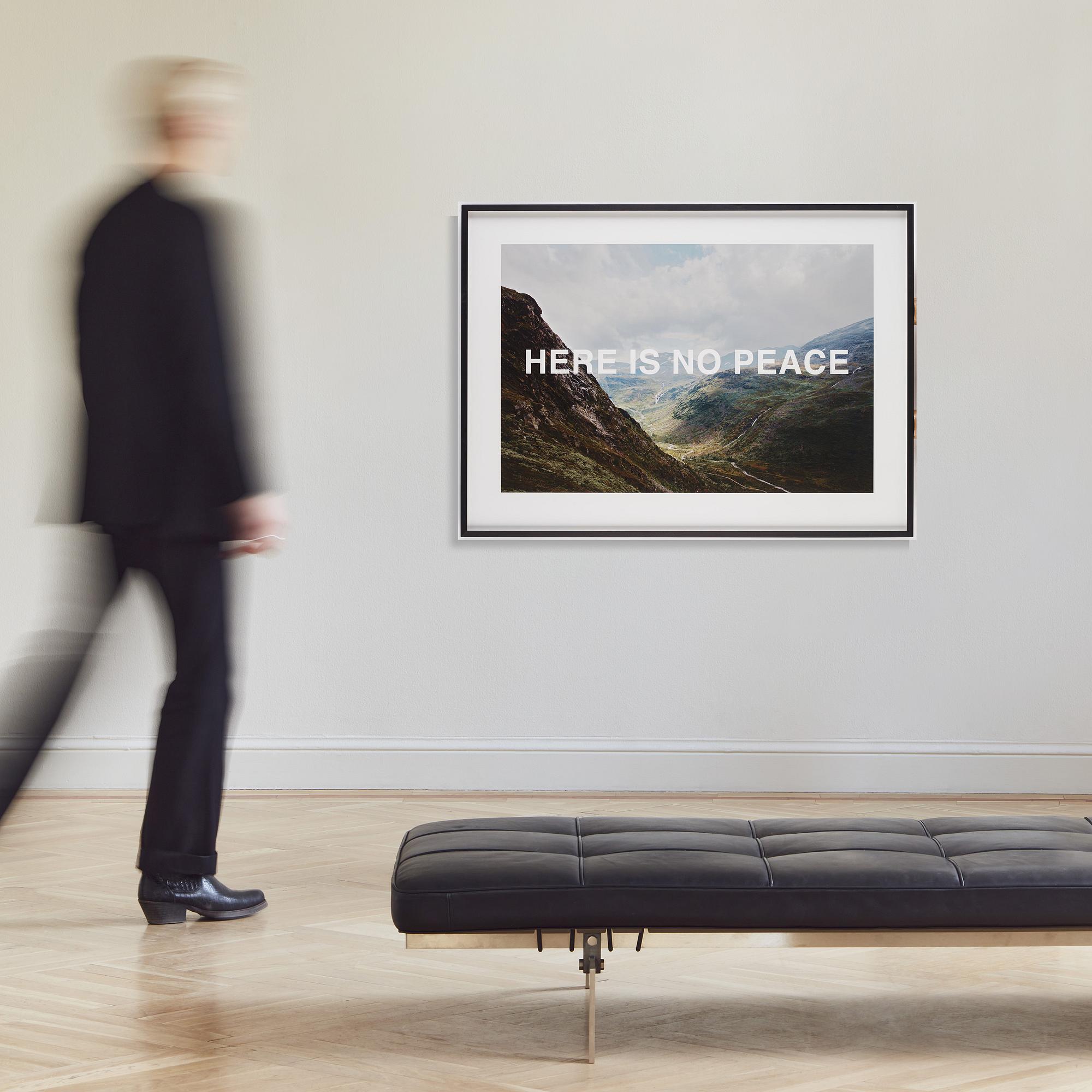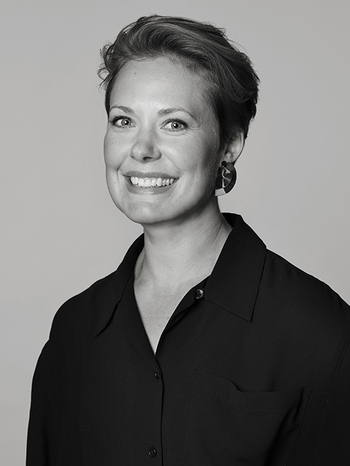Johan Bergström
"Pagan Postcards (Mayhem Excerpt #04)", 2011
Signed Johan Bergström and numbered 1/2 on label verso. Pigment print 103 x 140 cm including frame.
Provenance
Nordin Gallery, Stockholm.
Exhibitions
Nordin Gallery, Stockholm, "Pagan Postcards", 2012.
More information
The work Pagan Postcards takes the ideologies of Norwegian black metal as its starting point. In a series of images fragments of lyrics are taken out of their context to be projected on norwegian scenery, the same scenery that served as inspiration for a new wave of black metal. Instead of embracing the characteristic dark and symbolic visual codes of black metal, the sceneries here are displayed in the manner of Romanticism and influenced by Norwegian romanticist painters like Johan Christian Dahl, Hans Gude and August Cappelen. Many of the ideas that defined Romanticism could two hundred years later be found in the manifestoes of Black Metal. For all of its violence and misanthropy, black metal is a deeply romantic movement and this is nowhere more evident that in their hymns to nature.
This underground music scene became worldwide notorious through sensationalized media reports on a series of symbolic acts of violence. The second wave of Black Metal, emerging in Norway in the early 1990s, gave expression to a more aggressive and incarnated satanic or heathen ideology than their predecessors. Bands like Mayhem, Darkthrone, Burzum, Immortal, Emperor, Ensalved and Thorns came to define what soon would be labeled as True Norwegian Black Metal. The scene´s quest for authenticity triggered an arms race that ended up in suicide, murders and church burnings. All in favor of appearing as the most evil, or the most "true". Besides the anti-Christian mindset and an opposition to modern society in general, black metal is fixated with notions of a idealized pre-Christian past. It desires a transformation of the self into a new/old version of humanity that back metalers believe is empowered, violent and inseparably linked to the harshness and amorality of nature. By placing almost exclusive emphasis on emotion, sensory experience and mysticism, black metal rejects the basic tenets of the Enlightenment.
In less extreme, still resembling philosophy, the Romanticism movement celebrated independence of human spirit and the supremacy of feeling. Romanticist artists investigated human nature and personality, the folk culture, the national and ethnic origins, the medieval era, the exotic, the mysterious, the occult, the diseased and the satanic. In Romantic art, nature—with its uncontrollable power, unpredictability and potential for cataclysmic extremes—offered an alternative to the ordered world of Enlightenment thought. The movement validated strong emotion as an authentic source of aesthtetic experience, placing new emphasis on such emotions as trepidation and awe—especially that which was experienced in confronting the sublimity of untamed nature and its picturesque qualities.
Through sampling and remixing the work Pagan Postcards takes an open-ended and ambiguous shape, on the one hand hinting an approaching apocalypse and on the other hand celebrating the grandeur of nature. It gives a voice to the gloomy moods of contemporary society in the wake of financial crises, natural disasters, wars and acts of terror as well as to a rising back-to-nature movement.









































